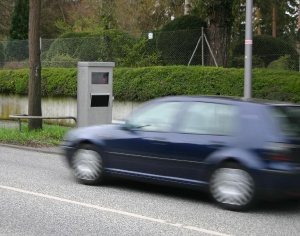Jun 27 2008
12 fixed PoliScanspeed systems designed by VITRONIC are to begin operation on state trunk and regional roads in summer 2008. The LIDAR (Light Detection and Ranging) technology and digital imaging technology provides speed enforcement on up to 3 lanes of traffic. The target of the Lithuanian authorities is to reduce the number of deaths caused as a result of unsafe speeds by 25% before 2010.

Each year in Lithuania approximately 1,200 traffic accidents take place, in which 300 people die and 2,500 people are injured be-cause of vehicles traveling at unsafe speeds. Speed cameras have been in operation in Lithuania since 2003 and have been used where traffic calming measures have proved ineffective or are difficult to implement. A previous installation has proven the success of fixed speed enforcement systems. During a two year trial on state trunk roads no traffic accidents, during which any person would be injured or killed, were recorded. The number of vehicles which exceed the speed limit by more than 20km/h also decreased by 80%.
The open international tender was awarded after collaboration between VITRONIC and its local partner company SONEX Tech-nologies, UAB. The two companies have found a solution which deals with high speed drivers in a cost-effective and efficient man-ner. Already in international use, the laser-based solution PoliScanspeed is to be introduced as part of the State Programme for Road Safety for 2005–2010. Founded by the Lithuanian Roads Administration, the initiative aims to reduce the number of deaths caused by unsafe speed by 25% from today’s level.
At the core of the system lies next-generation laser technology. In contrast to many older technologies, this enables multiple vehicles to be identified and tracked on up to 3 lanes from a single system. With lane-specific speed detection, not even drivers traveling par-allel or tailgating can avoid enforcement. If a driver is caught speeding a color photograph of the vehicle is sent, along with ad-ditional case data via a wireless connection to the Lithuanian Po-lice Traffic Supervision Service for further processing. The case file is encrypted to prevent data manipulation. The system archi-tecture also provides the possibility to classify vehicles.
The newly-designed housing enables the state-of-the-art systems to operate in temperatures from -30°C to +45°C, at speeds of up to 250km/h. Unlike any other solution available the new PoliScanspeed ‘dual-use’ system also permits mobile use. The unique design allows the whole system to be easily inserted into the fixed roadside housing. If required, it can be removed and mounted within a patrol vehicle or on a tripod, then reinstalled af-ter the mobile enforcement is complete. The highly resistant safety cases, with steel walls and security glass, protect the internal components.